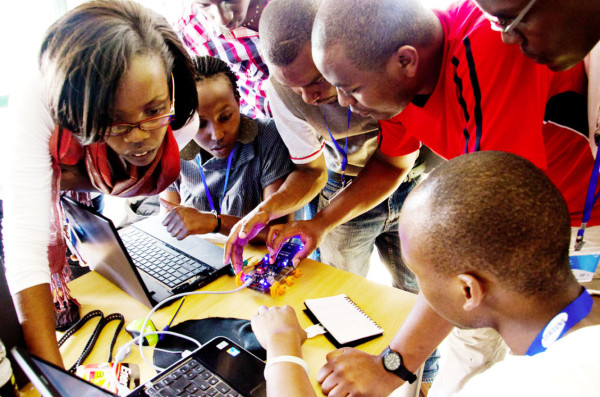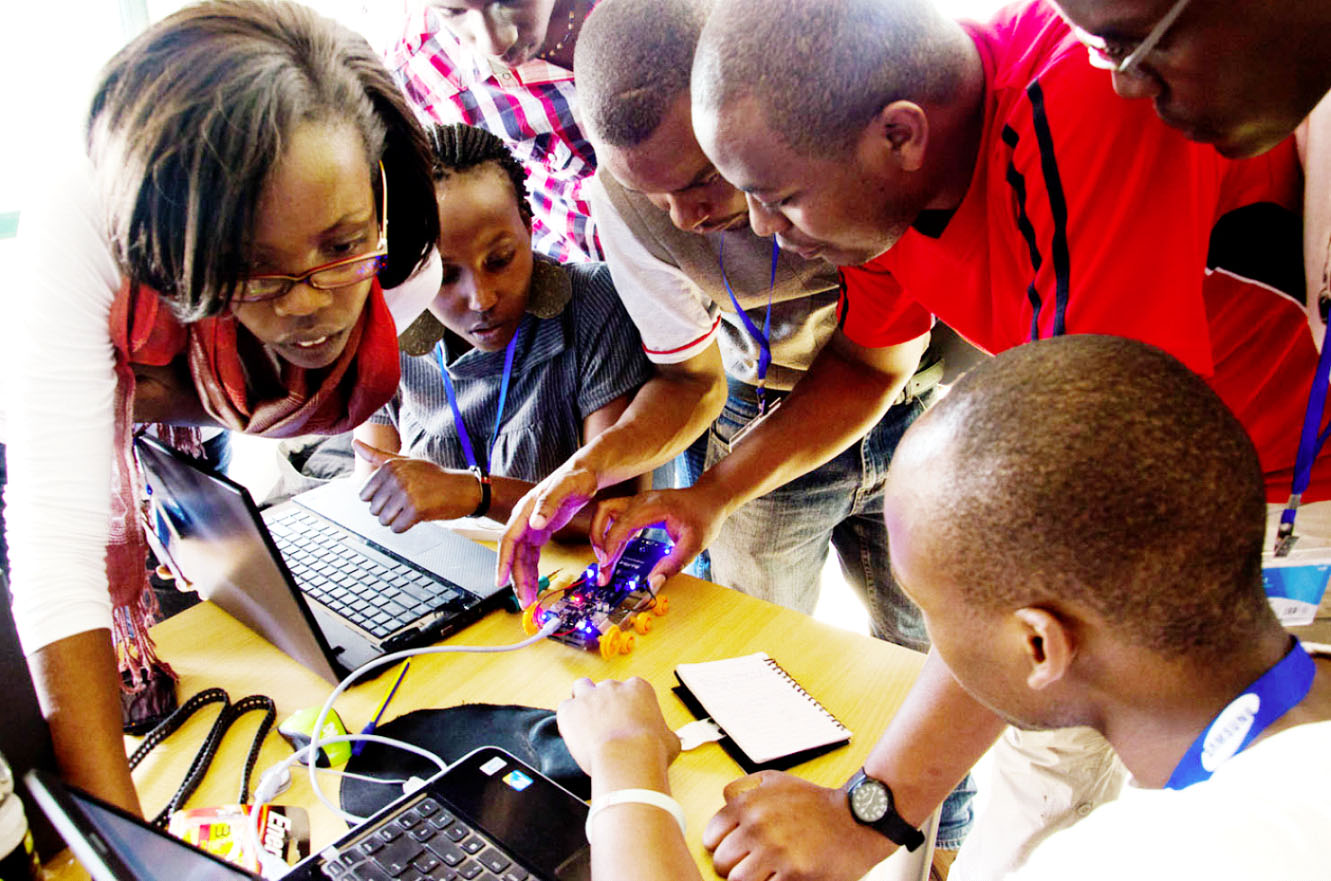(Reprinted from African Business Magazine)
A crop of innovative startup entrepreneurs is filling up Nairobi’s tech space. From applications aiming to automate small businesses, localised software to check for computer viruses, to mobile phone-based solutions that might put an end to chaotic elections, the mobile technology scene is simmering with activity, churning out solutions that could solve Kenya’s, and Africa’s, problems.
A few miles from the bustling city of Nairobi sits iHub, a shared working space for innovators and entrepreneurs.
The iHub is a boiling point of innovation. It is also the convergence point for young innovators, investors, venture capitalists, students, coders, programmers and budding entrepreneurs.

Nairobi has become the tech hub of Africa, a niche that could be worth more than a billion dollars in the next few years. The ICT sector is set to contribute up to 8% of the country’s GDP by 2017, according to the Kenya ICT Authority’s ICT Masterplan. In Kenya, innovation and entrepreneurship are intertwined. Little surprise then that US President Barack Obama, while opening the 6th Global Entrepreneurship Summit in Nairobi in July, celebrated these young innovators.
M-Farm is one of these innovations. The software solution and agribusiness company founded by Jamilla Abas introduced a tool for farmers whereby they simply use text messages to get information on the retail price of their products, buy directly from manufacturers and find buyers.
In the lowlands Rift Valley township of Baringo, Wilberforce Seguton, a local innovator, has created Kenya’s first antivirus software, aptly named Bunifu Sniper. “Bunifu” is the Kiswahili word for “creative”.
If successful, his startup will be a localised solution to cyber security problems. Seguton has given trial versions of the software to hundreds of businesses and plans to launch the full version in early 2016.
M-Kura (Swahili for “M-Ballot”) is another start up that seeks to revolutionise how polls are conducted. Mike Andrew Nduati, the brains behind this SMS and online voting platform, was inspired by the 2008 post-poll violence in Kenya.
In Juja, 30 miles north of Nairobi, four more local startups are being incubated at a recently launched innovation hub, the Nairobi Industrial and Technology Park (NITP), a subsidiary of Jomo Kenyatta University of Agriculture and Technology (JKUAT).
Taifa Laptops, one of the flagship projects at NITP, is manufacturing Kenya’s first laptop computers, with at least 4,000 already on sale locally. At the NITP incubation centre, a new assembly line to produce laptops for the mass market is being fine-tuned, ready for production. Though not 100% locally made, the Taifa Laptops project seeks to attract local innovators who will provide parts and support services.
“The project will support a whole ecosystem – from distribution, sales, marketing, branding, to manufacture of accessories to go with the laptops,” says Calvin Kebati, NITP’s deputy director.
The other projects at the NITP incubation hub include Rehau HomeGas, micro-biogas equipment running on cow dung, designed for both rural and semi-urban households; GOIP, which offers Voice Over IP solutions for single-site and multi-site businesses; and Shujaa Tractors, assembling mini-tractors with low fuel consumption to help farmers till their land more efficiently. All these projects are targeted at the general population, whose lives they can transform.
A few yards away, Judith Owigar is busy giving jobs to experienced artisans. Her startup, Juakali.co.ke seeks to link skilled workers with jobs, especially in the suburbs, where residents face a perennial challenge of getting reliable and trustworthy plumbers, painters, carpenters, welders, mechanics, housekeepers and gardeners.
Owigar turned her college project into a startup that is currently enjoying a warm reception from both employers and skilled artisans. This might be a solution to Kenya’s unemployment problem.
So far, the platform is making inroads into a field that had not been exploited before. Owigar also co-founded Akirachix, a not-for-profit organisation that aims to inspire and develop women in technology. She pitched it to Presidents Obama and Kenyatta during the Global Entrepreneurship Summit (GES) in Nairobi and she was one of the 30 semifinalists from around the world in the Spark the Fire competition held during the GES.
Unlike in some other startup capitals, where running a startup is relatively easy, Kenyan innovators contend with limited resources, some falling by the wayside.
“It’s debilitating,” sighs Michael Andrew Nduati, the innovator behind M-Kura. Nduati struggled to raise capital to build his prototype. He decries local investors’ low appetite for funding homegrown startups.
However, some startups have emerged strongly.
Hilda Moraa is a local success story. In May, she sold her startup for a record $1m, making it a top acquisition.
Kopo Kopo is another success. It offers a platform enabling small and medium-sized businesses to accept mobile payments and build relationships with their customers. After launching in 2012, Kopo Kopo partnered with Safaricom to bring the M-Pesa Buy Goods service to small and medium-sized businesses throughout Kenya.
These two startups show there is huge potential for local innovators; however, most do not ultimately benefit from their ideas. Take M-Kura’s Michael Andrew Nduati’s case, for instance. The mobile voting platform’s adoption in Kenya is subject to approval from the country’s electoral body. Changing systems is a challenge, as the process is lengthy and involves policy change.
Bitange Ndemo, former permanent secretary for information and communications for the government of Kenya, argues there will only be widespread entrepreneurial success in Africa if the continent’s tech startups take entrepreneurship more seriously, while African governments must do more to create a supportive entrepreneurial ecosystem.





